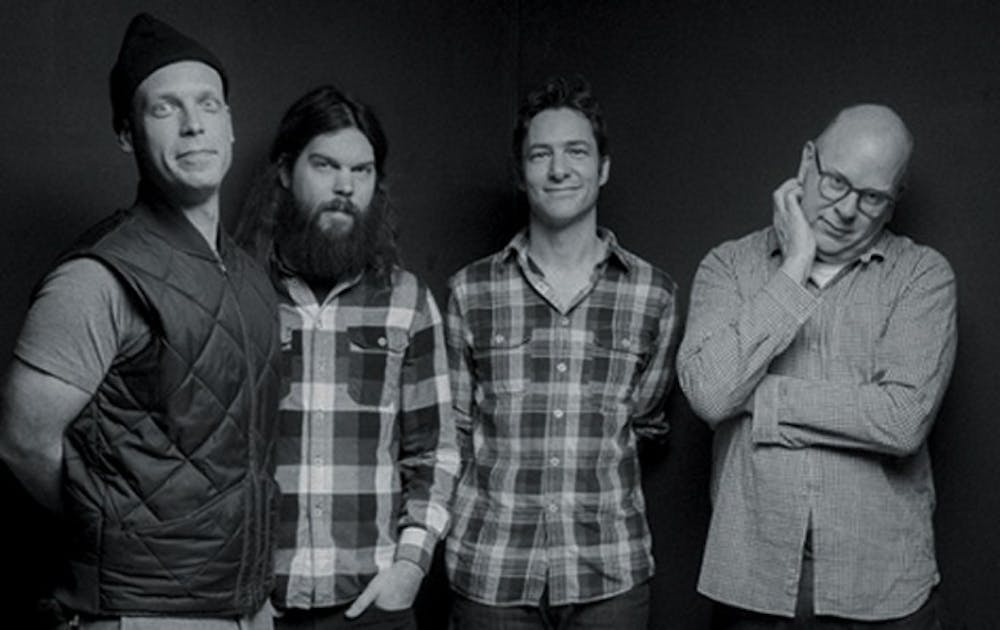In a music industry where young bands are often preferred and fetishized, it’s exciting to hear well-seasoned musicians crafting some of the best rock out there. Douglas McCombs, of the bands Tortoise, Eleventh Dream Day and Pullman, started Brokeback in the mid-1990s as solo project, through which he explored spare melodic sounds on his six-string Fender Bass VI. Brokeback and the Black Rock is the first Brokeback release in nearly a decade, marking a new era for the band.
Like most of McCombs’s work, Brokeback is usually considered post-rock. Indeed, because of his role with Tortoise, McCombs is often credited as one of genre’s founders. Their music, like much of post-rock, avoids using lyrics, and in the case of Brokeback and the Black Rock that’s a blessing. Whereas some bands might have felt compelled to write a catchy vocal hook or tack on some nonsensical “ooh”s and “yeah”s, Brokeback lets the instruments carry the music.
In its new incarnation, Brokeback has moved away from the delicate quiet melodies that characterized their earlier releases. In its place is a sound that’s both louder and richer, though never too brash. Exactly the right amount of reverb adds lushness to the dialogue between guitar and bass, especially on “The Wire, the Rag, and the Payoff” when psychedelic moments perfectly meld together the band’s ambient tendencies and instrumental narratives.
The album can be described as a conversation or set of conversations—between instruments and between tracks. The musicians are perfectly in tune with each other, and the swells of emotion are arranged with an artistry often reserved for classical orchestras. Like a successful quartet, Brokeback manages to express raw emotion without appearing sloppy. In other genres of rock, like punk rock, sloppiness often gets mistaken for genuine emotion. Brokeback’s bass and guitar lines, on the other hand, delicately weave in and around each other, revisiting and modifying musical strains throughout each track. Without lyrics or quirky vocals, Brokeback can’t use contemporary poetry to hide weak musical composition. And they don’t need to, because Brokeback and the Black Rock is so well-crafted that it stands on its own without verbal explanations. Each track is excellent, but listened to as a whole the tracks feel like movements of a larger symphony.
The narrative arc and complex soundscape of Brokeback and the Black Rock are best appreciated if the album is listened to in a single sitting. Opener “Will Be Arriving” begins with a questioning guitar riff, which spins off into a thoughtful reflection, ending in what feels a big moment of discovery. Later tracks explore the angstier side of introspection, for example “Who is Bozo Texino?” which has a worried vibe and climactic moments of anguish. Yet, despite the angst, many of the tracks end on an uplifting note. “Don’t Worry Pigeon” is a quiet meditation with a cyclical pattern. The album finishes with “Colossus of Roads,” an epic ten-minute reverb-drenched affair. Three minutes in, a soulfully sweet guitar makes its first appearance, returning periodically to provide the contemplative piece with a sense of unity, finishing with a joyful uplifting guitar solo. By the end, the listener has been taken on an intense inward journey, encouraged to prod dark hidden places and, finally, brought out into the metaphorical sunshine to breath and try again.
Get The Chronicle straight to your inbox
Signup for our weekly newsletter. Cancel at any time.

